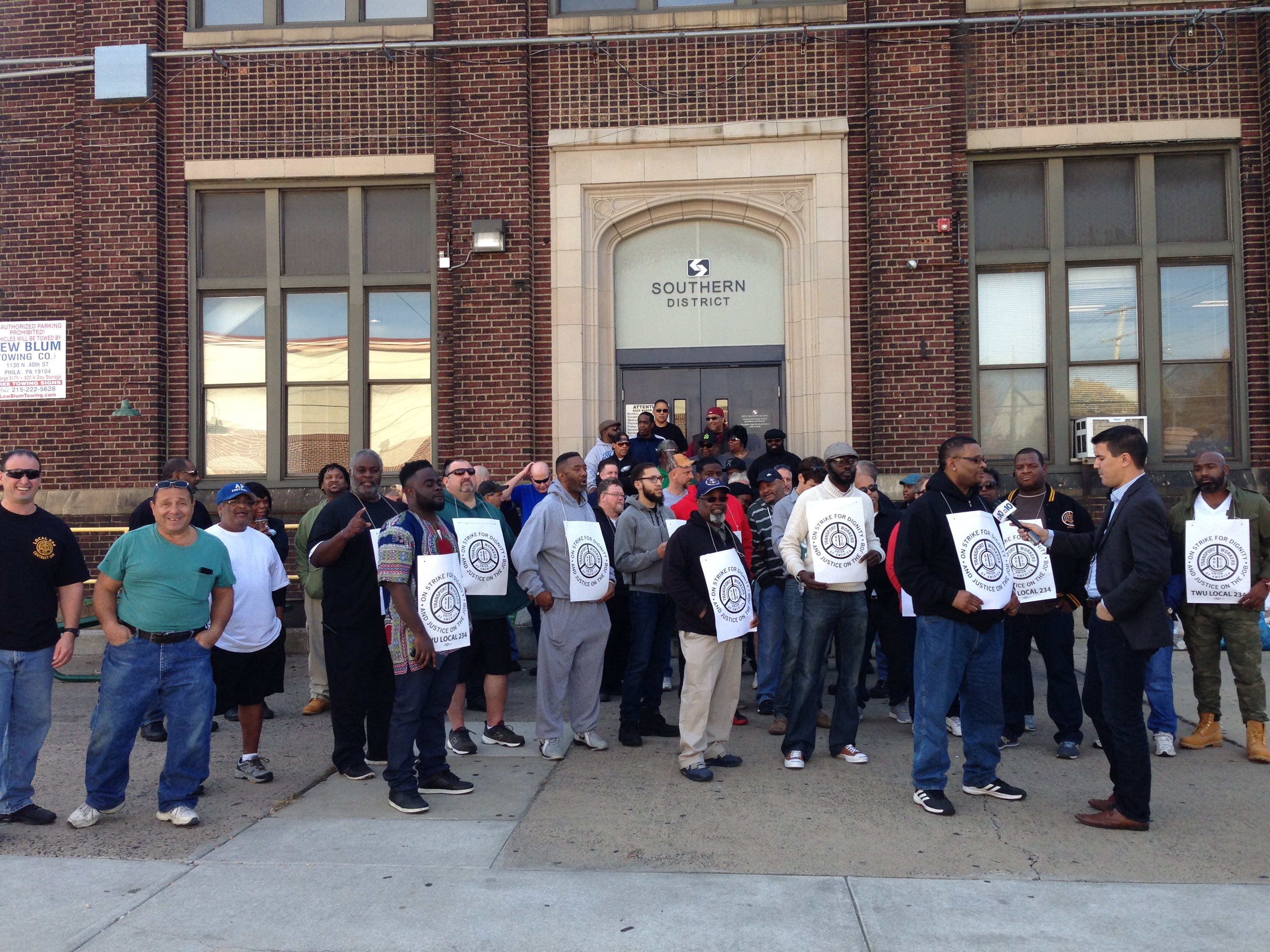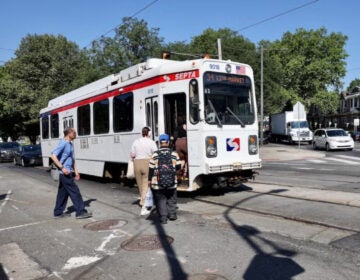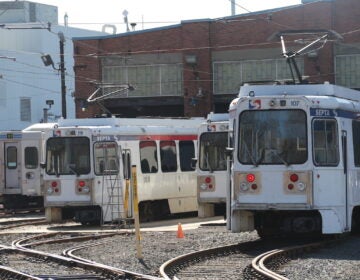What striking transit workers want

On Wednesday afternoon dozens of striking Transport Workers Union (TWU) Local 234 members were gathered at a bus hub deep in South Philly at 20th and Johnson, SEPTA’s Southern District, picketing – chanting “2-3-4” occasionally, holding signs, and grilling lunch. These men and women are striking over pensions, health care, and schedules – issues that sound abstract in the language of negotiations but are personal for individual workers. I wanted to hear from TWU workers what they’re striking for, and what matters most to them individually.
For Leroy Pearson, a Route 79 bus operator, it’s all about pensions. He will mark his 27th anniversary at SEPTA in January. “You put so many years in a job, and then you leave the job and you wind up in worse shape than when you were on the job.” He also said he wants to make sure those coming up after him see strong pension plans too.
TWU wants its pensions to match management’s – lifting the current $50,000 salary cap on the union pension formula to one that sets the cap equal to its highest pay grade, which currently is $70,000 annually.
“Pension is a concern, but number one for me is the medical care,” said bus operator Marvella Lopez who drives the Route G. Lopez said she’s particularly concerned about increased cost for her family’s health plan. “With the commitment that we give to SEPTA, they shouldn’t even be raising that issue.”
For now union workers pay 1 percent of pre-overtime wages into their medical coverage. SEPTA says that averages out at $46 monthly, and proposed incrementally increasing the amount employees contribute to health plans over five years up to $164. But SEPTA’s health insurance costs have gone up 41 percent since 2008.
Two big issues that are somewhat underrepresented in conversation about the SEPTA strike are concerns related to rest and schedules. Transit workers say breaks between runs and the turnaround time between shifts are both far too short.
Karen, a TWU bus operator (who declined to give her full name), said drivers hardly get enough time to use the bathroom.
“We’re out here 12 hours a day and we’re going up and down the street and there’s no restrooms on the routes that we have. So sometimes you can’t make it to the end of the line to go to the bathroom. And you literally have to pull over and pray that one of the stores or locations will let us use the restroom without purchasing anything,” she said. “Well, do I make a choice: Either go to the bathroom, or hear the public scream and holler, or hear management on your back about not keeping your schedule?”
If the bus you’re driving gets stuck in traffic, and arrives late at the end of your route, drivers will miss a break because there’s pressure to keep the buses moving. That’s a recipe for exhaustion and could compromise safety, drivers said. TWU is seeking longer breaks, which is also a question of headways.
The union is also arguing that having only eight hours between shifts, the federal minimum, is too little turnaround time for operators, especially new ones who are apt to see the worst schedules.
“To expect someone to pack up, finish their paperwork, go home, travel how far they have to travel and travel back, you don’t really get 8 hours rest. And 8 hours rest for a person who’s working 12, 13, 14 hours a day isn’t enough,” said Tony Goins, a business agent for TWU Local 234 and former operator out of SEPTA’s Southern District.
“This job is like no other, it’s not you coming in here working at nine and getting off at five. It just doesn’t happen. People are burnt out. You can come in here at one on Monday and be here 14 hours. Come in here Tuesday, work an hour. Come in here Wednesday, you’re working the late [shift]. Come in here Thursday, you’re working midday. Come in here Friday, you’re back working early. Your body doesn’t have the opportunity to adjust to it,” said bus operator and Southern District chairperson Andre D. Jones, Sr.
And to the people who say the union workers already earn good salaries and have good benefits, Jones has a reminder: “They’re hiring. If you feel that way, then join.”
VIDEO – WHYY’s Kimberly Paynter spoke to striking city transit workers at Southern District about their jobs and their concerns in the strike:
WHYY is your source for fact-based, in-depth journalism and information. As a nonprofit organization, we rely on financial support from readers like you. Please give today.








